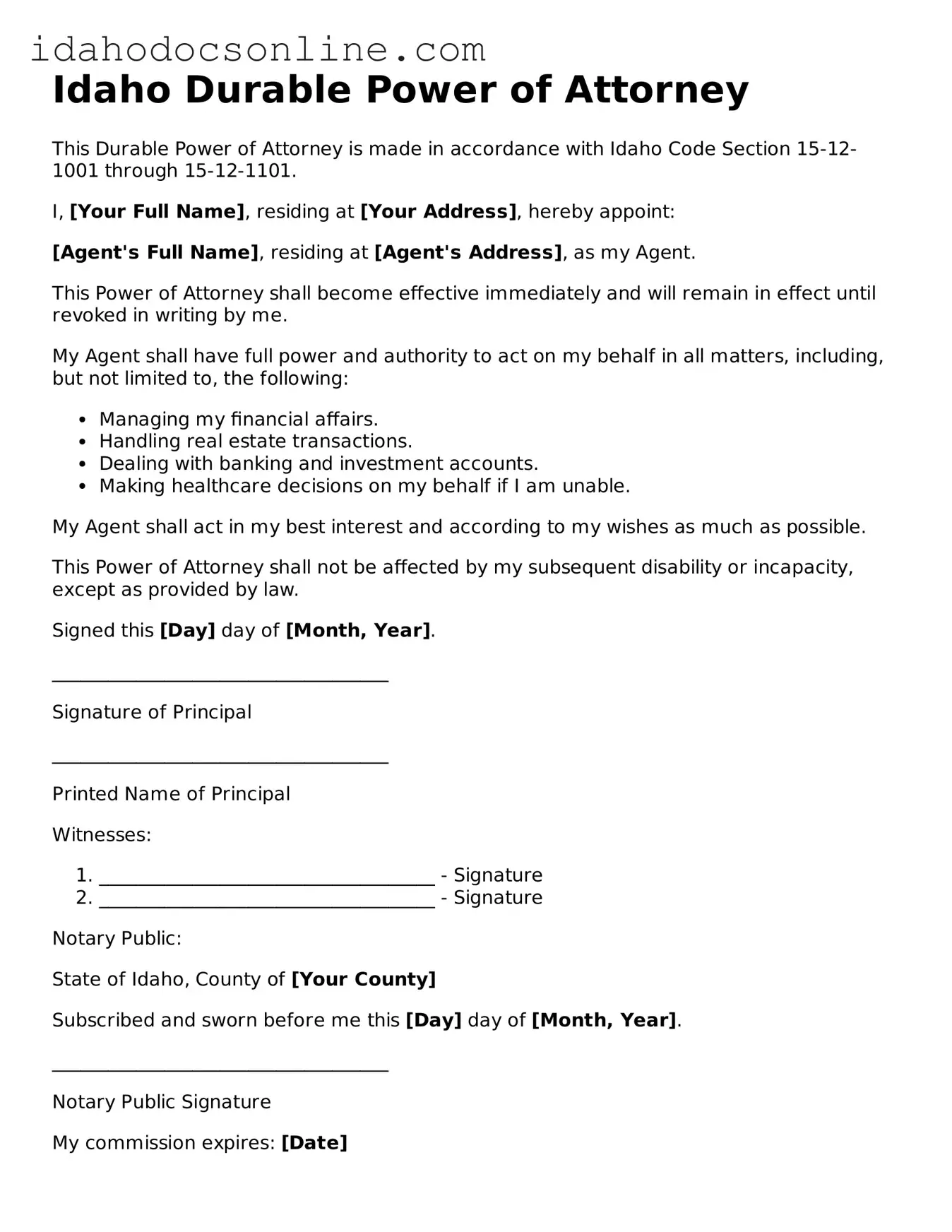Free Durable Power of Attorney Form for Idaho
The Idaho Durable Power of Attorney form is a legal document that allows an individual to designate another person to make decisions on their behalf regarding financial and medical matters. This form remains effective even if the individual becomes incapacitated, ensuring that their wishes are honored. Understanding its importance can empower individuals to plan for their future effectively.
Ready to take control of your future? Fill out the form by clicking the button below.
Fill Out Your Document

Free Durable Power of Attorney Form for Idaho
Fill Out Your Document
Need speed? Complete the form now
Complete Durable Power of Attorney online — edit, save, download with ease.
Fill Out Your Document
or
Free PDF
